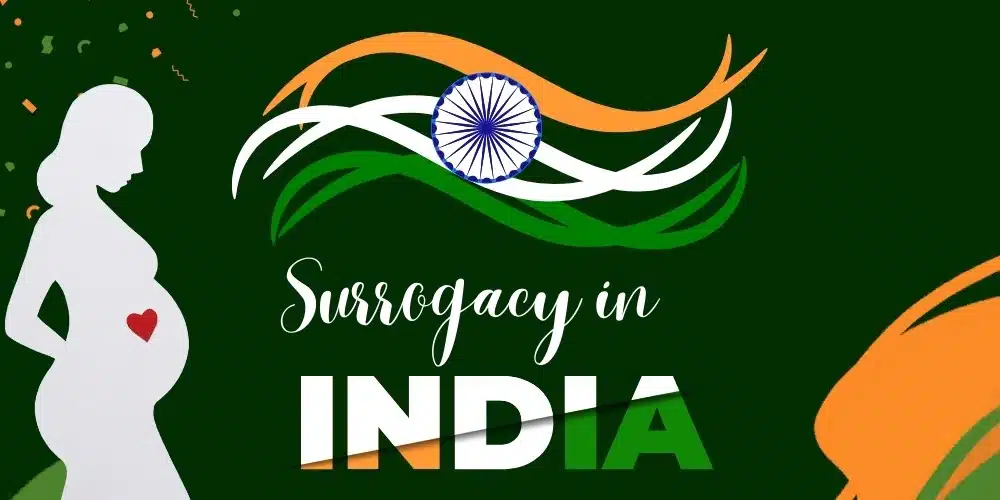India, as one of the most populous and high-tech countries in the world, considers surrogacy legal for some people, but not all foreigners are allowed to perform surrogacy in India! But you should know that many Indians don’t consider surrogacy in India reasonable and travel to other nearby countries to achieve their dream of becoming a parent. Thus, we can say to you surrogacy in India is good but so challenging!
Why do many Indians travel to other countries like Iran to perform surrogacy? In this article, we will explain to you that the strict laws of India in this country lead people to this. Another reason for this is the possibility of traveling to a country like Iran without visa, which is possible for Indians.
So stay with us!
First surrogacy in India
The first successful surrogacy in India occurred in 1978, resulting in the birth of a baby girl named Kanupriya in Kolkata. This significant event marked the introduction of surrogacy as an option for assisted reproductive technology and surrogacy in India has been evolving day by day.
Dr. Subhash Mukherjee, a prominent figure in the field of infertility treatment in India, performed the procedure. Using in vitro fertilization (IVF), Dr. Mukherjee and his team created an embryo using the intended parents’ egg and sperm. The embryo was then transferred to the surrogate mother’s womb, who carried the pregnancy and gave birth to the baby.
first surrogate mother in India
One of the most common questions about surrogacy in India is, who was the first surrogate mother? In this session, we will tell you about it!
The identity of the first surrogate mother in India is not publicly known, as surrogacy was initially a secretive practice. However, it is believed that she was an impoverished woman from a rural area who was motivated by the financial compensation offered for the surrogacy arrangement.
Surrogacy in India has a long and complex history, and the role of the surrogate mother has been the subject of much debate. On one hand, surrogate mothers are often praised for their generosity and willingness to help others achieve their dream of parenthood. However, they have also been criticized for being exploited and commodified. The Indian government has taken steps to regulate surrogacy in order to protect the rights of surrogate mothers.
Types of Surrogacy in India
Surrogacy, the practice of a woman carrying and delivering a child for another couple, has long been a complex and controversial issue. India, once a global hub for surrogacy, has undergone significant legal and ethical changes in recent years, shaping the landscape of surrogacy practices within the country.
So, types of surrogacy in India are written below and you can know about them here:
Traditional Surrogacy in India
The first type of surrogacy is “traditional surrogacy”, where the surrogate mother also provides the egg, was once a common practice in India. However, concerns about potential genetic ties between the child and the surrogate mother have led to a decline in its popularity. Additionally, the development of gestational surrogacy, a more ethically acceptable approach, has further diminished the use of traditional surrogacy.
Gestational Surrogacy
Gestational surrogacy, is the second type of surrogacy; Wherein the egg is fertilized with the sperm of the intended father or an anonymous donor and implanted into the surrogate mother’s womb, has gained widespread acceptance in India due to its ethical implications. This method ensures that the child is genetically related to the intended parents, removing any concerns about potential biological connections to the surrogate mother.
Altruistic Surrogacy
Altruistic surrogacy, where the surrogate mother does not receive financial compensation for her services, is considered the most ethical form of surrogacy. However, finding surrogate mothers willing to participate without compensation can be challenging. Additionally, the lack of financial incentive may raise concerns about the surrogate mother’s motivation and potential exploitation.
Commercial Surrogacy
Commercial surrogacy, where the surrogate mother receives financial compensation for her services, has been the most common types of surrogacy in India. However, it has also been the most controversial due to concerns about potential exploitation of surrogate mothers, particularly those from low socioeconomic backgrounds. Critics argue that commercial surrogacy can create a situation where surrogate mothers are viewed as commodities rather than individuals making a selfless decision.
Current status of surrogacy in India 2024
The current state of surrogacy in India is a complex and ongoing topic of discussion. In 2015, India’s Supreme Court banned commercial surrogacy for foreigners and unmarried Indian couples due to concerns about the exploitation of surrogate mothers and the commercialization of childbirth. Altruistic surrogacy, where a surrogate mother agrees to carry a child without monetary compensation, was permitted but uncommon.
In 2021, the government enacted the Surrogacy Amendment (Regulations) Act, which further tightened surrogacy regulations. The law now prohibits surrogacy for all foreigners and unmarried Indian men, even with a blood relative as the mother. Additionally, surrogate mothers must be at least 25 years old and have at least one living child.
The legislation also establishes a central registry for surrogacy and surrogacy clinics to monitor and ensure fair treatment of surrogate mothers.
Nonetheless, there are concerns that the law excessively limits access to surrogacy. Some argue that banning commercial surrogacy discriminates against unmarried Indian couples and infringes upon their right to become parents. Others believe that restrictions on surrogacy for foreigners are unfair and may drive the practice to other countries.
The government is presently contemplating amendments to the Surrogacy (Regulatory) Act and evaluating potential changes. The debate surrounding surrogacy in India is expected to continue for years to come.
Totally, Indian government banned surrogacy for single parent and unmarried people such as single men and single women.
According to the Surrogacy (Legal) Law 2021, a woman who is widowed or divorced between the ages of 35 and 45 or a couple who are legally married as husband and wife can use surrogacy if they have medical conditions.
Summary of surrogacy terms and conditions in India
We can tell you; surrogacy is allowed in India in conditional manner for Indian, not for foreigners and these conditions are written below:
- Commercial surrogacy is banned for foreigners and unmarried Indian couples.
- Altruistic surrogacy is permitted but uncommon.
- Surrogacy is not allowed for unmarried Indian men, so, surrogacy is not allowed for single father!
- The requirement is for an Indian heterosexual couple who are officially married. The man should be aged between 26 and 55, and the woman should be aged between 25 and 50. Additionally, the woman should not have any biological, adopted, or previous children, as they are looking for a surrogate child .
- Surrogate mothers must be at least 25 years old and have at least one living child.
The future of surrogacy in India remains uncertain as the government considers potential amendments to the Surrogacy (Regulatory) Act. The discussion on surrogacy is likely to persist for an extended period.
Surrogacy cost in India 2025
Surrogacy costs in India range depending on the type, clinic, and location. Compared to other countries, surrogacy in India is generally more affordable.
Altruistic surrogacy, where the surrogate mother doesn’t receive payment, is the cheapest option. It typically costs around Rs. 5 lakhs to Rs. 8 lakhs ($6,600 to $11,000). However, altruistic surrogacy arrangements are rare.
Commercial surrogacy, previously more common but now banned for foreigners and unmarried Indian couples, had higher costs ranging from Rs. 15 lakhs to Rs. 25 lakhs ($22,000 to $37,000). The ban has led to a decrease in surrogacy costs in India overall.













